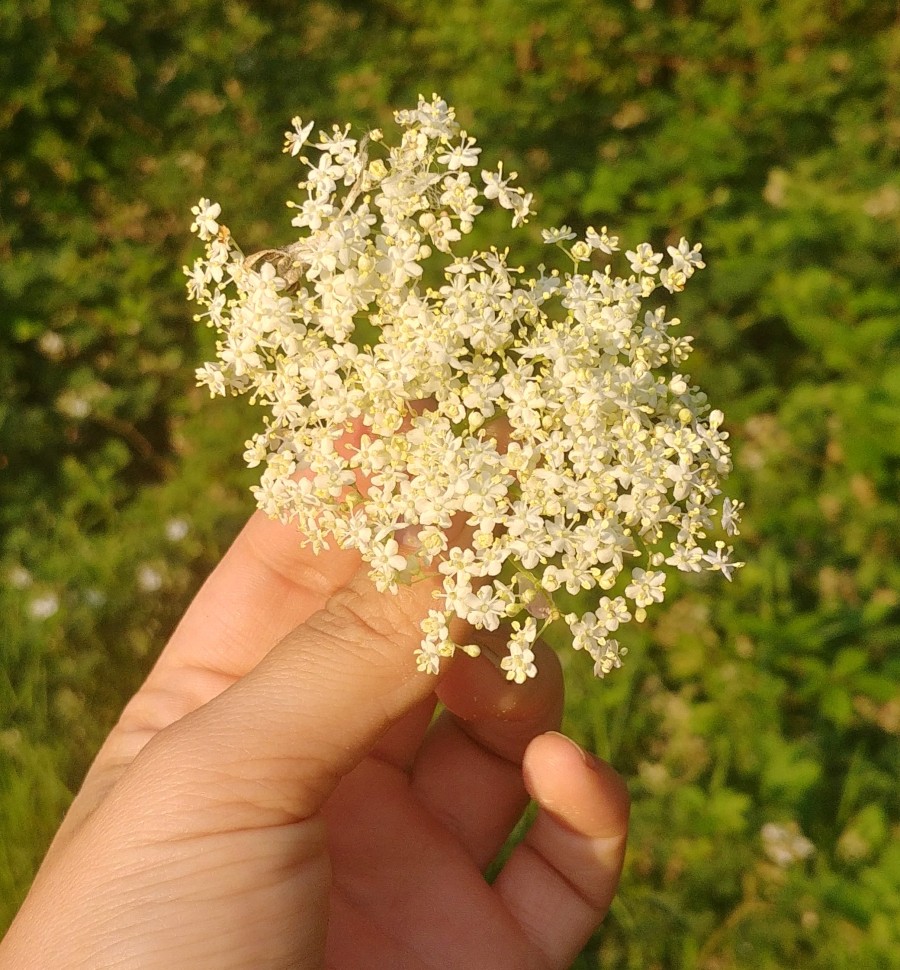Elderflower champagne tastes of British summer. Unusually this is something you will struggle to buy, you have to instead engage in the quest for the flower. You start by seeking them out, keeping an eye as you walk along the routes through your parks and neighbourhoods. Once you find a tree with those beautiful blossoms, pick them and thank the tree. Back at home, you can view your treasure more closely, shake any bugs off them and then put them with the rest of your ingredients in a large pan to start brewing.
I remember the smell of elderflowers from when I was a kid, although I didn’t know their name. All of the different flowers from the bushes and trees around our area were inspected and sniffed. In the spring and early summer we would use these flowers for decorating various dens that we made, or put them in bouquets as gifts for our toys, or offerings for faeries. In the autumn different berries and leaves would be mixed into potions that smelt so pungent we implicitly knew they shouldn’t be eaten.

As an adult, I don’t spend as much time making potions and floral offerings, which is part of the reason that making elderflower champagne (or fizz, we’re not supposed to call it champagne) appeals so much to me. I use this recipe from Spruce Eats. Unlike a lot of foraged alcoholic concoctions this one really does turn water into wine, rather than you just adding a flavouring to a drink you already have. There is something magical about the brewing process, and the fact that we can do it ourselves in our kitchens without expensive fancy equipment is brilliant. It’s also incredibly cheap to make. I never buy bottles to put it in, just save ones that were headed to the recycling bin and reuse them.
Human minds respond well to stories, to beginnings, struggles and resolutions. They help give us meaning and context for our lives. Today we have so much convenience that a lot of what we do is without thought and devoid of meaning. Often with food and alcohol there is no understanding of what sort of journey it has been on before it has got to us, and the closer we are to the end consumption the further we are from giving it value. The difference between eating a microwave meal you mindlessly swallow while watching telly and eating a meal you cook from scratch with ingredients from your garden. This isn’t to say that convenience is bad, and everyone should be making their own clothes from grass, there is a time and a place for fast food. When your meal has a story that you’re part of, when you involve yourself in the process of it getting onto your fork – because you picked the tomatoes out yourself, or grew the herbs, or you cooked it – it becomes more meaningful.
Any glass you have of your own elderflower champagne is special. The flowers only bloom for a few weeks at the end of May until mid June and you can’t really buy it in the shops. When you share it with your friends, you will tell them about how you made it and remember the weather as you picked the flowers from the tree. When a bottle of it explodes on your shelf and soaks everything underneath it, you’ll remember the sound of it going off and tell yourself to make sure you burp the rest of the bottles more regularly. When you have a glass, because of the journey around it, it becomes a meaningful part of your day and you savour every sip.
Summer becomes ours to bottle with just a bit of effort.

